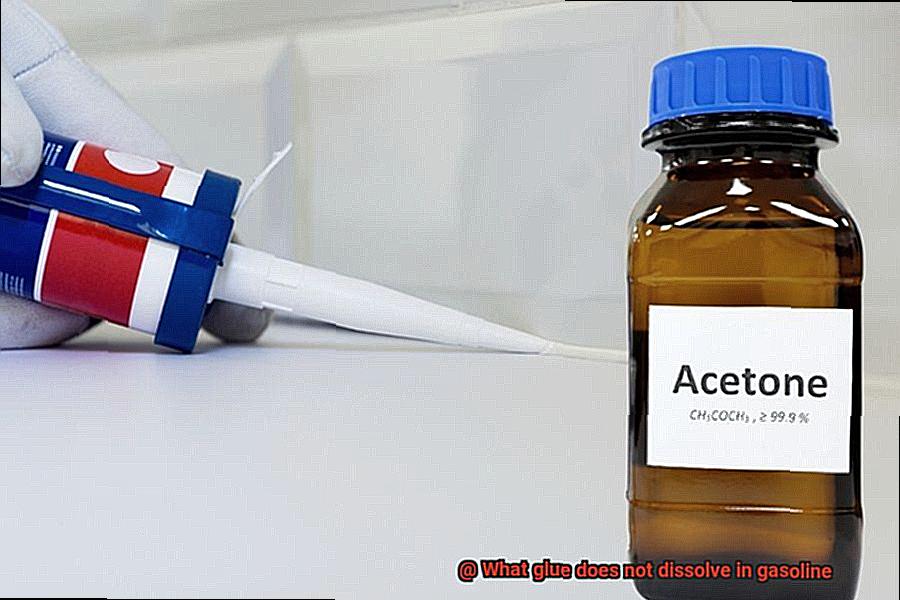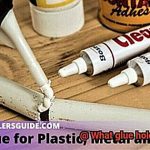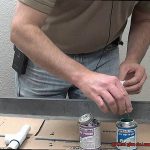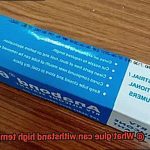Glue is like the duct tape of the crafting world. It’s a go-to tool for anyone who wants to fix, create, or build something. But not all glues are created equal – some can handle gasoline while others dissolve faster than cotton candy in water. So what glue does not dissolve in gasoline?
Gasoline is a tricky substance that can break down even the strongest adhesives. Imagine working on your dream project only to have it fall apart at the first sign of gasoline exposure. It’s frustrating, time-consuming, and costly.
But don’t worry. We’ve got you covered with this blog post that explores the types of glue that can withstand gasoline. We’ll dive into their properties, how they work, and where they’re best used. By the end of this post, you’ll be equipped to choose the right glue for your project and avoid any gas-related mishaps. So let’s rev up our engines and get started.
Different Types of Glue and Their Resistant to Solvents
Contents
- 1 Different Types of Glue and Their Resistant to Solvents
- 2 Epoxy: The Popular Automotive Adhesive
- 3 Cyanoacrylate (Super Glue): Excellent Resistance to Solvents
- 4 Polyurethane Adhesive: A Durable Bond for Automotive Applications
- 5 Traditional Wood Glues: Not Recommended for Use with Gasoline
- 6 Considerations When Choosing a Glue for Projects Exposed to Gasoline
- 7 Factors to Look For in an Adhesive Resistant to Gasoline or Other Solvents
- 8 Tips on Getting the Best Results with Your Project
- 9 Conclusion
Different types of adhesive offer varying degrees of resistance to solvents like gasoline. If you’re working on a project that will be exposed to gasoline, it’s important to choose the right glue for the job. Here are some of the most common types of glue and their resistance to solvents.
Epoxy is a two-part adhesive that creates a strong bond and is commonly used in automotive and industrial applications. It’s resistant to many solvents, including gasoline. This makes it an excellent choice for projects that will be exposed to harsh chemicals.
Cyanoacrylate, also known as super glue, is another option that forms a strong bond quickly and can withstand exposure to gasoline. However, it’s important to note that cyanoacrylate may not be suitable for all applications due to its brittle nature. For this reason, it’s often used in conjunction with other types of glue.
Polyurethane glue is yet another type of adhesive that’s resistant to solvents like gasoline. This waterproof glue creates a strong bond and can be used on a variety of surfaces. However, keep in mind that polyurethane glue requires moisture to cure, so it may not be suitable for all applications.
In contrast, traditional white or yellow carpenter’s glue is not resistant to solvents like gasoline. This type of adhesive is designed for indoor use and will break down when exposed to harsh chemicals like gasoline.
It’s important to note that even if a particular type of glue is resistant to gasoline, it may not be suitable for all applications. Always refer to the manufacturer’s instructions and recommendations for proper usage and safety precautions.
In conclusion, choosing the right type of adhesive for your project is crucial when it comes to resistance to solvents like gasoline. Epoxy, cyanoacrylate (super glue), and polyurethane adhesives are all good options that offer excellent resistance to solvents like gasoline.
Epoxy: The Popular Automotive Adhesive
Are you tired of automotive projects falling apart due to weak adhesives? Look no further than epoxy, the go-to adhesive for many professionals in the automotive industry.
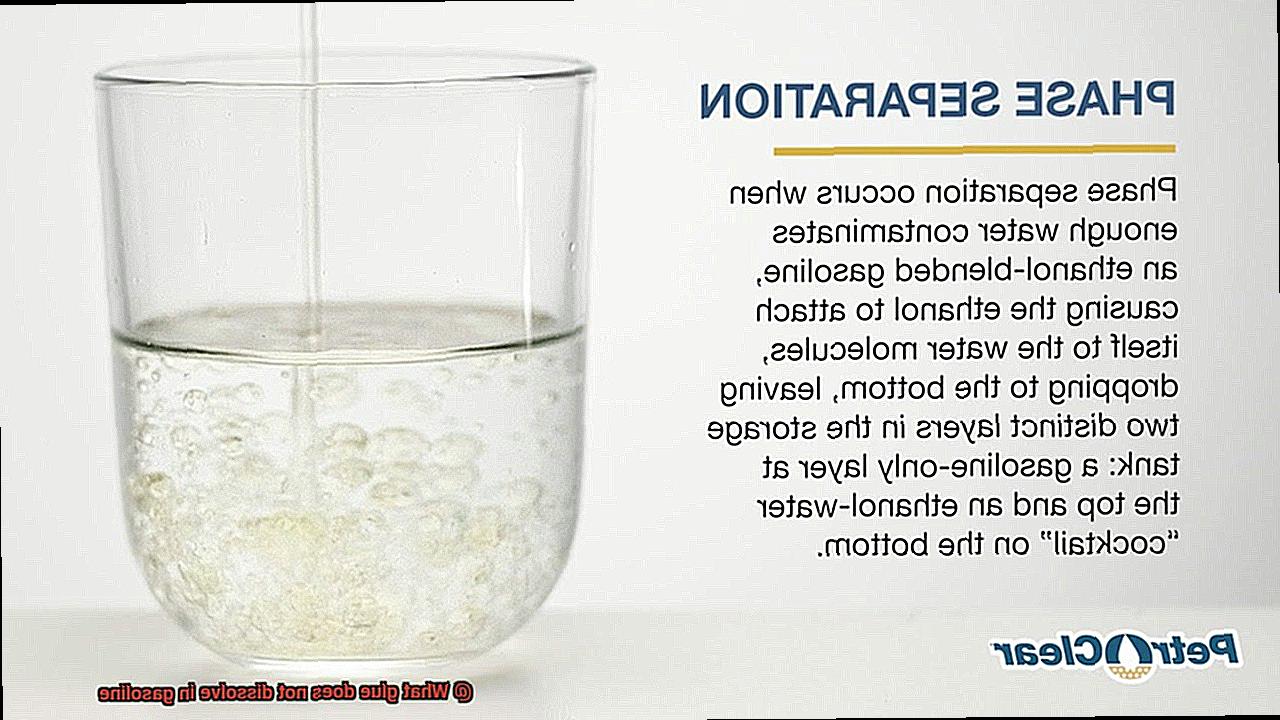
What sets epoxy apart from other adhesives? For starters, its strength. When mixed correctly, epoxy creates a bond that can withstand the toughest vibrations and stresses found in cars, trucks, and other vehicles. No need to worry about parts coming loose during harsh driving conditions.
But strength isn’t the only advantage of using epoxy in automotive applications. It’s also highly resistant to gasoline and other chemicals commonly found in automotive environments. Unlike other adhesives that dissolve or weaken when exposed to fuel or other fluids, epoxy remains steadfast and reliable.
Epoxy’s ability to fill gaps and create a smooth surface is another major benefit. This is particularly useful when bonding uneven surfaces or repairing damaged parts. And don’t worry if your part is cracked or damaged – epoxy can still create a strong bond that extends the lifespan of your components.
Thinking about using epoxy for your next automotive project? Here are some tips to keep in mind:
- Follow the manufacturer’s instructions carefully for proper usage and safety precautions.
- Take your time when mixing the resin and hardener together – accuracy is key.
- Make sure the surfaces you’re bonding are clean and free of debris before applying the adhesive.
- Allow sufficient curing time before handling or using the newly-bonded part.
Cyanoacrylate (Super Glue): Excellent Resistance to Solvents
Look no further than cyanoacrylate, also known as super glue. This popular adhesive is celebrated for its quick bonding ability and exceptional resistance to solvents, including gasoline.
What makes cyanoacrylate stand out from other adhesives is its unique chemical structure. The carbonyl group found in cyanoacrylate molecules reacts with water molecules in the air, forming powerful bonds that make it resistant to solvents like gasoline. This chemical reaction ensures that cyanoacrylate maintains its integrity even when exposed to harsh chemicals.
Aside from its resistance to solvents, cyanoacrylate has many other benefits. It bonds almost any material, including plastics, metals, and ceramics, and dries quickly, making it ideal for fast-paced projects. Plus, it’s incredibly easy to use since it doesn’t require any mixing or special equipment.
However, like all adhesives, cyanoacrylate has its limitations. It can be brittle and may not be suitable for applications that require flexibility or shock absorption. Additionally, it may not bond well with surfaces that are oily or dirty, so proper surface preparation is necessary for optimal results.
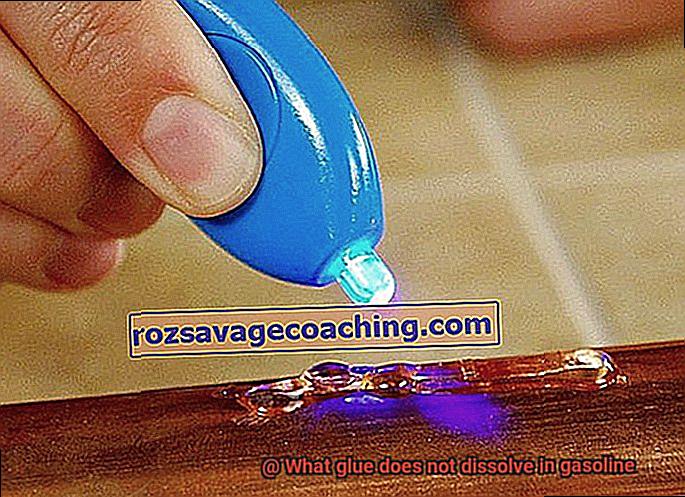
Polyurethane Adhesive: A Durable Bond for Automotive Applications
When it comes to automotive applications, having a durable and reliable adhesive is crucial. This is where polyurethane adhesive shines as a superhero of sorts, ready to withstand the harshest environments and keep your vehicle running smoothly.
Polyurethane adhesive is a two-part adhesive that consists of a base material and a hardener. When mixed together, a chemical reaction occurs, resulting in a strong bond that can withstand various harsh chemicals, including gasoline and oil. This makes it the perfect choice for automotive use where exposure to chemicals is inevitable.
One of the most significant benefits of polyurethane adhesive is its ability to bond different types of materials together. It can bond metals, plastics, and composites with ease, making it ideal for use in high-stress areas such as engine mounts and suspension components. Additionally, it has excellent resistance to impact and vibration, ensuring the bond remains strong even in the toughest conditions.
Polyurethane adhesive also has impressive weathering properties, allowing it to withstand exposure to UV rays, moisture, and temperature changes without losing its strength or breaking down. This makes it an incredibly reliable choice for automotive applications where parts need to withstand exposure to the elements.
Traditional Wood Glues: Not Recommended for Use with Gasoline
Look no further, traditional wood glues are not the solution to your problem.
Traditional wood glues, including yellow glue, white glue, and hide glue, are not recommended for use with gasoline. Why, you ask? Well, these types of glues are water-based and are not designed to withstand exposure to gasoline or other solvents. When these glues come into contact with gasoline, they break down and dissolve, causing the bond to weaken or fail entirely. This could lead to a catastrophic situation when dealing with gasoline tanks and fuel lines.
Furthermore, traditional wood glues are not formulated to adhere well to non-porous surfaces like metal or plastic, which are typically what gasoline tanks and fuel lines are made of. Even if the glue doesn’t dissolve from the gasoline, it may not stick well enough to do its job effectively.
So what’s the solution? When it comes to repairing gasoline tanks and fuel lines, it’s important to use adhesives that are specifically designed for this purpose. Two excellent options are epoxy and polyurethane adhesives.
Epoxy adhesives are two-part adhesives that consist of a resin and a hardener. When mixed together, they create a robust, long-lasting bond that can withstand exposure to gasoline and other solvents. Epoxy adhesives also adhere well to non-porous surfaces like metal and plastic, making them an ideal choice for repairing gasoline tanks and fuel lines.
Polyurethane adhesives are another excellent choice for repairing gasoline tanks and fuel lines. They have excellent bonding strength and can withstand exposure to gasoline and other solvents. Additionally, they can adhere well to a variety of surfaces including metal and plastic.
Remember, it’s crucial to follow the manufacturer’s instructions carefully when using any type of adhesive with gasoline or other solvents. Incorrect use or application could lead to a weak or failed bond, which could be dangerous when dealing with gasoline tanks and fuel lines.
Considerations When Choosing a Glue for Projects Exposed to Gasoline
If so, choosing the right glue is crucial to ensure that your project remains strong and intact. Not all glues are created equal, and some will dissolve or weaken when exposed to gasoline. Therefore, it is essential to consider the type of glue used carefully. Let’s explore some considerations when choosing a glue for projects exposed to gasoline.
Firstly, epoxy is a two-part adhesive consisting of a resin and hardener that creates a robust bond that can resist exposure to gasoline, oil, and other chemicals. Its excellent gap-filling properties and ability to bond well with various materials such as metal, plastic, and wood make it an excellent option for these projects.
Another option for projects exposed to gasoline is cyanoacrylate or superglue. This glue forms an instant bond when it comes into contact with the surface and can withstand exposure to gasoline and other fuels. However, it is essential to note that it is not suitable for use on large surfaces or materials that will experience stress or strain.
Polyurethane adhesive is another option that can resist gasoline exposure. It bonds well with a variety of materials and provides excellent resistance to chemical exposure. However, it should be used with caution as it can expand and create a foam-like substance that may not be suitable for specific projects.
When choosing a glue for projects exposed to gasoline, it is crucial to read the product label carefully and ensure that it is suitable for use with the materials being bonded. It is also important to follow the manufacturer’s instructions carefully when using the adhesive to ensure maximum effectiveness and safety.
Factors to Look For in an Adhesive Resistant to Gasoline or Other Solvents
There are several factors to consider when selecting an adhesive, and taking these into account will help you make the right choice.
The first factor to consider is the application for which the adhesive is designed. It’s important to choose an adhesive that is specifically formulated for use in automotive or industrial applications, as these types of adhesives are typically made with high-performance resins that can withstand exposure to harsh chemicals like gasoline. Choosing an adhesive that isn’t designed for this purpose could result in a weak bond that won’t stand up to the demands of your project.
Another important consideration is the substrate material you will be bonding. Different adhesives are designed to work with specific materials, so it’s essential to choose one that is compatible with the materials you’re working with. For example, if you’re bonding metal parts, you may need a different adhesive than if you were bonding plastic parts.
Curing time is also an important factor to consider. While some adhesives require a longer curing time than others, it’s important not to rush the process, as this can compromise the strength of the bond. However, in manufacturing settings where productivity is critical, finding a balance between curing time and bond strength is crucial.
The temperature range in which the adhesive will be used is another critical consideration. Many adhesives are effective only within a narrow temperature range, so it’s important to choose an adhesive that can withstand the extremes of your application. If your project will be exposed to extreme temperatures, choosing an adhesive that can handle those conditions is essential.
Tips on Getting the Best Results with Your Project
Working on a project involving gasoline or other solvents requires careful consideration when selecting and using glue. Here are five essential tips to keep in mind:
Choose the Right Type of Glue
Not all glues are created equal, and some may not be suitable for use in projects that involve exposure to gasoline. Epoxy, cyanoacrylate, and polyurethane adhesives are all good options that offer excellent resistance to solvents like gasoline. It is important to choose a glue that is specifically formulated to withstand exposure to gasoline.
Prepare the Surface
To ensure a strong bond, it is crucial to prepare the surface before applying glue. Grease or oil residues can prevent the glue from bonding effectively, so make sure the surface is clean, dry, and free of any contaminants.
Apply the Glue Correctly
The key to a successful bond is to apply the glue evenly and in the correct amount. Over-application can lead to messiness and waste, while under-application can result in a weak bond that may fail over time. Following the manufacturer’s instructions carefully is essential.
Allow Sufficient Time for Curing
Different types of glues have varying curing times, so be sure to check the manufacturer’s instructions for guidance on how long you should wait before using or exposing your project. Allowing sufficient time for the glue to cure is crucial for a strong bond.
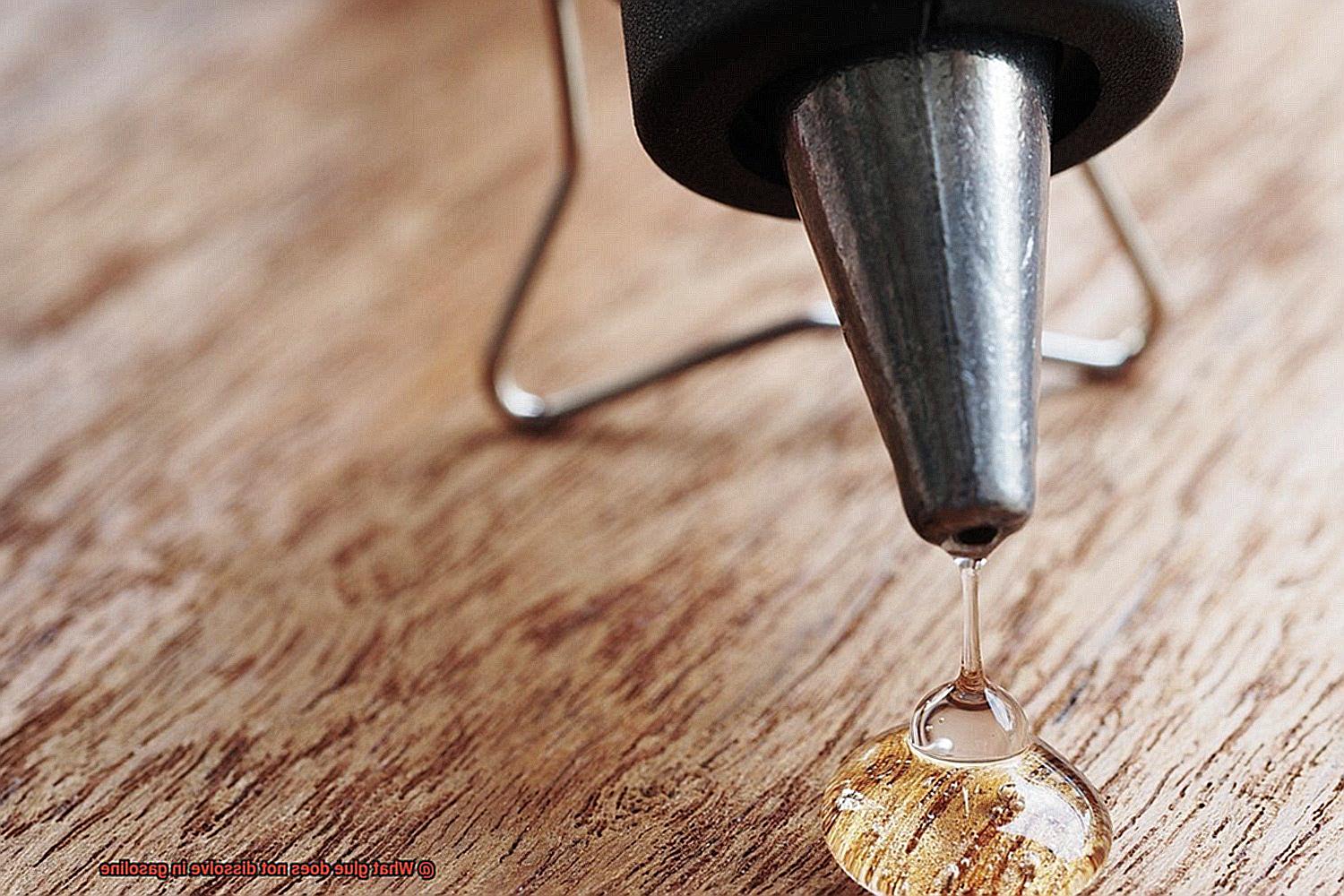
Consider Temperature and Humidity
Extreme temperatures or high humidity can affect how well the glue bonds and may result in a weaker bond or even failure. It is important to take into account any environmental factors that may affect the glue’s performance.
nf4USriwTJ0″ >
Conclusion
In conclusion, choosing the right adhesive for projects involving gasoline is crucial. Harsh chemicals can break down weaker adhesives, leading to project failure and potentially hazardous situations. Thankfully, there are several options to choose from that offer resistance to solvents like gasoline.
Epoxy is a popular choice among automotive enthusiasts due to its exceptional strength and ability to withstand harsh environments. Cyanoacrylate or super glue is another excellent option with quick bonding abilities and impressive resistance to solvents like gasoline. Polyurethane adhesive also boasts incredible bonding strength and weathering properties ideal for automotive applications.
When selecting an adhesive, it’s essential to consider factors such as application, substrate material, curing time, and temperature range. Proper surface preparation before application, using the correct amount of glue, allowing sufficient curing time, and considering environmental factors are all critical steps in achieving a strong bond.
It’s important to note that while some adhesives may resist gasoline exposure, not all are suitable for every application. Always refer to the manufacturer’s instructions and recommendations for proper usage and safety precautions.

